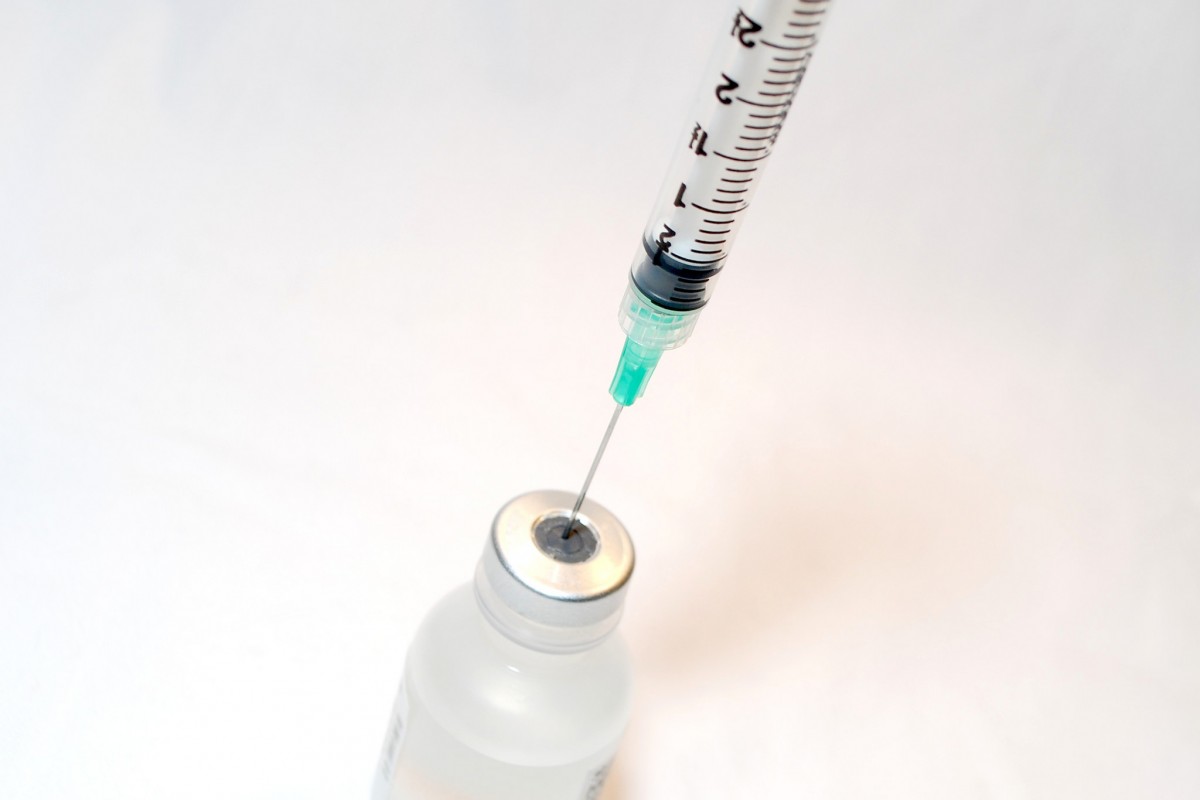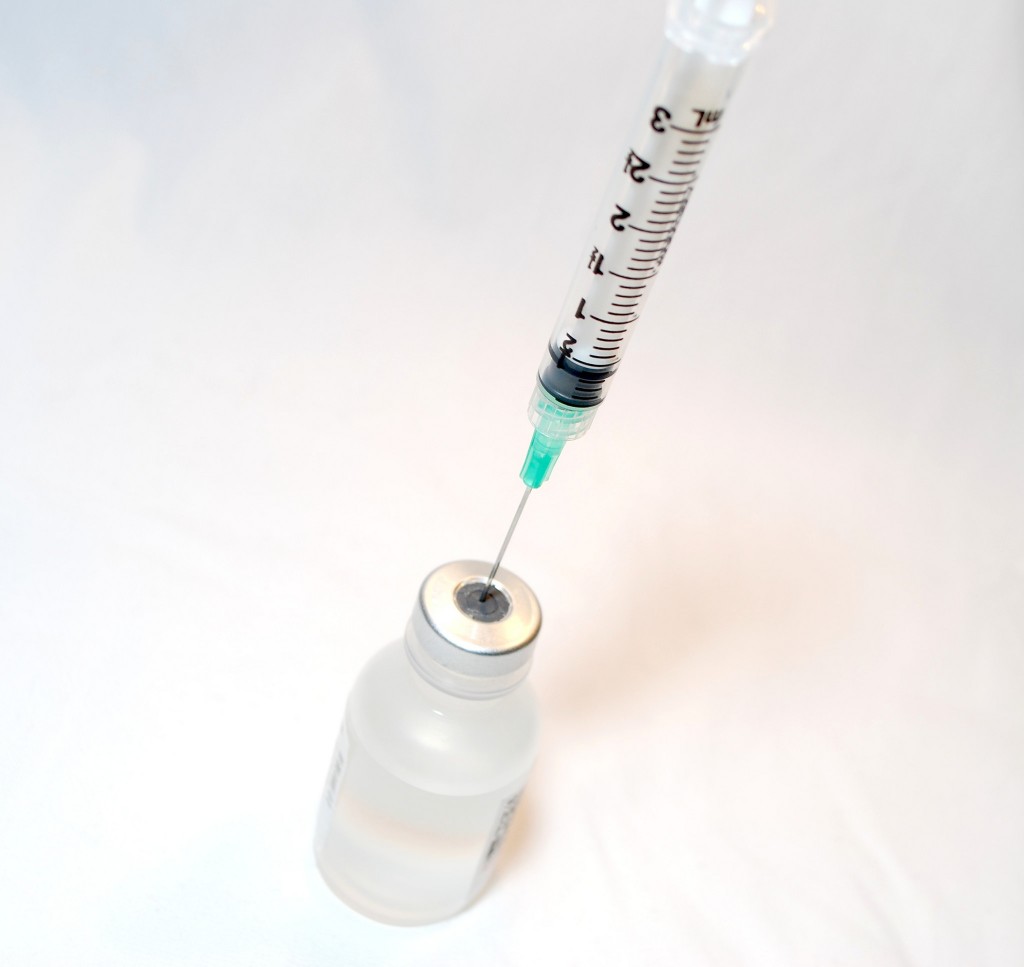

Should I vaccinate my child or not? It’s a choice every parent must make. We might be very set on our convictions, or are so unsure of what to do that you end up crying in your midwife’s office over your guilt of indecision.
But do you want to know what I really think about whether or not you vaccinate your children?
Nothing. Personally, I have no hard convictions about what you should do with your children, as long as they are loved and cared for.
[tweetthis]I have no hard convictions about what you should do with your children, as long as they are loved and cared for. #parenting #love[/tweetthis]
Myself, growing up in an anti-vax home, I came to parenthood impressed with the convictions from my own childhood. On the other hand, having taken a few years and a deep interest in university science courses, I carried around a scientific perspective as well.
Being able to see both sides of the argument made this decision extremely difficult for me (for the first while, hubby was relying on me to figure out the best course of action, until our midwife encouraged we both chime in). This, combined with the fact that I felt a great deal of pressure from both sides about what was “the right” thing to do, made it virtually impossible to make a decision one way or another about what we should do with our daughter, who we want nothing more for than the best of health and happiness.
Like every good parent does.
I know this “wanting the best” for your children is what causes a lot of pro-vaccine parents to feel like it is their place to “educate” (which can often look like shame and coercion) parents who have decided (or are considering) to pass on inoculating their own children. It can be scary to think that another human being out there poses a threat to your child. I get it.
However, vaccinating every child isn’t going to stop bad things from happening to your loved one. Life is full of crummy stuff. Maybe your child will be bullied and abused, physically or mentally, by another child. I’m sorry there’s no vaccine for that. Plane crashes, car accidents, drownings, violence… The thousands of deadly and disruptive chemicals that you can find in most of the products sitting in your vanity and medicine cabinet right now. Life is full of danger and calamity. We just do our best to bumble our ways through with the relatively small amount of unbiased information that’s available to us. We can only hope that we’ve made the best choices for our children, and accept that other families will always make choices that differ from ours, based on what they feel is the right thing to do for the children they love just as deeply.
Your child is your priority. Another person’s child is that family’s priority. Why should anyone put someone else’s child’s perceived safety over their own?
I feel strongly for families of immuno-compromised children. I cannot imagine how hard it must be to constantly be afraid that an unseen force is at work to bring potentially-fatal illness to your child. But, just as I’m not about to start telling every parent that they should be following x, y or z parenting philosophy in order to make them the children I want my emotionally sensitive child to share a world with, I’m not about to tell another parent which risks they should be taking with their child in order to please me and ease my own parenting anxieties. I will offer my personal opinions and advice when asked, but ultimately it’s none of my business.
On the other hand, I recognize that, as a parent of an immuno-compromised child, you have every right to fight for your child’s best chance at what you believe will provide his health and safety. Let’s be honest – if I was in this situation, I would likely be broadcasting that everyone should be vaccinated. Please recognize, though, that in doing so, you may be compromising another family’s rights to what they believe will provide their child with the best chance for health and safety. Unfortunately, there is no perfect situation for everyone.
If you’re having a hard time making the call to vaccinate your little one or to not, or even if you should stick to the general calendar of vaccinations, I know you’re trying to do your best for your babe. It’s not an easy decision for a lot of parents, as there is so much propaganda and so much emotion and extreme position taken on this debate for both sides. There’s a lot to consider.
Now, I’m sure everyone having a hard time deciding has already done, or is about to do, a lot of digging, so I won’t go into too much detail, but I’m going to put down a list of decision factors you might consider when making your decision. I’m not trying to swing your decision one way or another, but offer a small bit of insight into both sides of the debate. Also, I really recommend talking to professionals (from a variety of perspectives – your health care nurse, medical doctor, naturopathic doctor, and whomever else’s opinions you value as professional) and reading multiple studies from scientific, peer-reviewed journals. These sources will give you the most knowledgeabele and accurate information (although you will never fully escape bias), rather than watching YouTube videos and reading scary posts by Joe Blow and Susie Somebody who are speaking from a place of pure bias. Here is a link to the World Health Organization “Good Information Practices” that explains how to figure out if a vaccine-safety internet source is trustworthy for providing you with reliable information.
[tweetthis]Make sure you have the most accurate facts on #vaccinations and vaccine-safety.[/tweetthis]
*I avoided linking to any scary stories because the brain has this crazy way of remembering information elicited by fear in a much stronger way than it does remembering simple and “boring” logic, and so this can muddle our decision-making processes when we try to consider all sides. The questions about vaccines are valid, but I encourage you to seek out unbiased information that tries to keep terror out of the equation. Facts can be shared without dramatizing experiences.
[tweetthis]In BC, thimerosal hasn’t been used in any routine childhood vaccine since 2001. #fact #vaccinations[/tweetthis]
There are risks to everything in life. It’s up to the individual to decide where their choice lies based on the weight of the benefits and risks, and the individual situation. As you might be able to tell, my personal feeling after consulting professionals (I sat with health nurses, medical doctors, my midwife and a naturopathic doctor) and looking at a wide variety of different sources (books, journals, documentaries, etc.) is that, for my family, the perceived benefits of vaccinating outweighed the perceived risks.
[tweetthis]Everything has #risks. #Parenting means making choices based on the benefits, risks, and individual situations.[/tweetthis]
However, I won’t pretend to think I know better than you about what is best for your family. I’m not posting this with the intent to persuade you that vaccinating is the “right” or “wrong” thing to do. Instead, I’m posting this because a) I want parents to recognize that we are all entitled to our own thoughts, feelings and decisions about how to be good parents for our individual families, and b) because I had a hard time wading my way through the vaccine debate and finding reliable and useful information to help me figure out what the best thing for me to do for my family was. I remember going to tears in my midwife’s office over the guilt and anxiety I was feeling over not knowing what the best thing to do for my family was.
In the end, I decided to vaccinate my child, but I have no problem with other people choosing to do what is best for them and their children. I have personal feelings and experiences with every single topic that comes up in parenting, but it’s not my place to tell any other person what’s best for them (even if I think I might know).
Anger and strong judgemental attitudes are doing nothing to help us stay healthy. In fact, it’s widely recognized that anger, and the high blood-pressures and negativity that comes with it, can be very damaging to one’s health.
I want to raise my child to be accepting, open-minded and respectful. To do that, I need it to come from me being that way.
There’s a lot more to health than just medicine.
[tweetthis]There’s a lot more to #health than just #medicine. Respect differing #parenting choices on #vaccines. [/tweetthis]
*Please note* I am not a medical or scientific professional, and thus none of the above should be taken as medical advice. This is what your board certified professional doctors are for (be it medical, naturopathic or otherwise). Take your concerns to them, and have a chat with someone who knows far more than both of us combined about medicine and health.